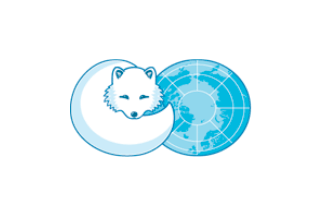|
|
|
|
|
|
|
|
Today's Congressional Action:
The House and Senate are not in session.
|
Media
 Alcoholism, Abuse, Neglect Threaten Nunavik Children: Human Rights Commission. Alcoholism, Abuse, Neglect Threaten Nunavik Children: Human Rights Commission. The president of the Quebec Human Rights and Youth Rights Commission, Camil Picard, recently wrote to several Couillard government ministers, saying the safety and development of children in Nunavik are threatened, La Presse [Quebec's leading daily newpaper] has learned. Picard had returned from a trip to Nunavik, from which he drew an undeniable conclusion: the problems associated with education, housing and drinking in this region are putting youth in serious danger. And the solutions cannot "come from the Grande Allée," [home to Quebec's National Assembly] but from the communities involved. Nunatsiaq Online
'Horribly Sick Kids:' Arctic Regions Have Highest Infant Lung Infection Rates in World. Research shows newborn babies in some Arctic regions have the highest rates of serious lung infections ever recorded in medical literature.
A paper published Tuesday in the Canadian Medical Association Journal Open says cases in Inuit infants in northern Quebec and western Nunavut are so numerous, it would be cheaper to treat all infants with a preventative medicine than wait until they get sick. "These are the highest rates in the world, higher than sub-Saharan Africa," said lead author Anna Banerji of the University of Toronto. CBC News
Academia in the Freezer: Running a University on the Top of the World.
At the world's northernmost university, staff and students are preparing for the Arctic winter: two months when the sun never rises above the horizon and the temperature rarely climbs above freezing. For Lasse Lønnum, director of UiT The Arctic University of Norway in Tromsø, this brings practical concerns: offering support to students who may struggle to adjust to the harsh environment, and switching on the specialist lighting that substitutes for sunlight in accommodation blocks. Times Higher Education
 Switzerland and the Arctic Council: If at First You Don't Succeed... It has become an informal tradition at the annual Arctic Circle conference in Reykjavík for non-Arctic states which are either observers in the Arctic Council, or potential candidates, to highlight their emerging regional diplomatic policies via panels and exhibits. In the recent past, governments, including those of Brazil, China, Japan and the United Kingdom assumed that role. At this year's event, which ended on October 9, it was Switzerland that unveiled its Arctic policy ambitions, including making a second attempt to become an observer, following its unsuccessful 2015 bid. The Arctic Journal Switzerland and the Arctic Council: If at First You Don't Succeed... It has become an informal tradition at the annual Arctic Circle conference in Reykjavík for non-Arctic states which are either observers in the Arctic Council, or potential candidates, to highlight their emerging regional diplomatic policies via panels and exhibits. In the recent past, governments, including those of Brazil, China, Japan and the United Kingdom assumed that role. At this year's event, which ended on October 9, it was Switzerland that unveiled its Arctic policy ambitions, including making a second attempt to become an observer, following its unsuccessful 2015 bid. The Arctic Journal Video treat. Watch a fantastic 4-minute video, by USCG's Dave Forcucci, Marine Science Coordinator, highlighting the recently completed expedition of icebreaker USCG Cutter HEALY, far north of Alaska, mapping the seafloor, dredging for rocks (to learn the origin of the seafloor), deploying observing platforms (in and under the sea), and conducting other scientific research activities, in collaboration with the Canadians aboard their vessel the Louis S. St. Laurent. The Chief Scientist on Healy was USARC Commissioner Larry Mayer. This expedition is in support of the US's Extended Continental Shelf project. More about that here.
|
Legislative Action.gif)
No Arctic legislation was formally considered yesterday.
|
|
Future Events
** New this week** Promoting Urban Sustainability in the Arctic: Public Event, October 21, 2016, Washington, DC. The George Washington University Dept. of Geography, IERES, and the Sustainability Collaborative present Partnerships for Int'l Research and Education (PIRE) "Promoting Urban Sustainability in the Arctic: Public Event" and reception to follow. A panel discussion, from 4:00 to 5:00 pm on the GW campus, on social sustainability in Arctic conditions, the economic role of cities, Arctic urban planning, and the political framing of sustainability in the Arctic. More info here.
Arctic Technology Conference, October 24-26, 2016 (St. John's, Canada). Founded in 1969, the Offshore Technology Conference (OTC) is the world's foremost event for the development of offshore resources in the fields of drilling, exploration, production and environmental protection. The Arctic Technology Conference (ATC) is built upon OTC's successful multidisciplinary approach, with 14 technical societies and organizations working together to deliver the world's most comprehensive Arctic event.
** New this week ** Geopolitics, Security and Energy in the Arctic. October 25, 2016 (Washington, DC USA). While commercial, environmental, and local community development aspects of the Arctic have received increasing attention in Washington in recent times, the US also faces growing national security challenges in the Arctic region. This is a worrying development, as the United States risks not being able to appropriately respond and posture for a rapidly changing security situation in the Arctic. The Atlantic Council will host this event to consider these challenges.
Fulbright Arctic Week. October 25-27 (Washington, DC) The 18-month Fulbright Arctic Initiative supports U.S. priorities on Arctic issues and increasing mutual understanding between Americans and those in other countries. As a culmination of the program, 17 scholars will be presenting their work at public events. Other invited speakers will include officials from the Inuit Circumpolar Council, Arctic Executive Steering Committee, and U.S. Arctic Youth Ambassadors, among other. For more information, please visit the Fulbright Arctic Week website and/or register your interest for updates.
October 25, 2-5:30pm - Smithsonian Natural History Museum
October 26, 2-5pm - Arctic Policy Dialogue at the Carnegie Endowment for International Peace
October 27, 9am-4:30pm - Fulbright Arctic Symposium at the National Academy of Sciences (Constitution Ave. location)
ARCUS Arctic Research Seminar Series with George Divoky, October 26, 2016 (Washington, DC USA). The Arctic Research Consortium of the US (ARCUS) is pleased to announce the Arctic Research Seminar Series event "Years of Change: a seabird responds to a melting Arctic." The ARCUS Arctic Research Seminar Series brings some of the leading Arctic researchers to Washington, DC to share the latest findings and what they mean for decision-making. These seminars will be interest to Federal agency officials, Congressional staff, NGOs, associations, and the public.
Towing Safety Advisory Committee, October 2016 Meeting, October 26-27, 2016 (Washington, DC USA). The Towing Safety Advisory Committee will meet in Washington, DC, to review and discuss recommendations from its Subcommittees and to receive briefs. This committee is established in accordance with, and operates under the provisions of, the Federal Advisory Committee Act. As stated in 33 U.S.C. 1231a, the Towing Safety Advisory Committee provides advice and recommendations to the Department of Homeland Security on matters relating to shallow-draft inland and coastal waterway navigation and towing safety.
1st International Muskox Health Ecology Symposium, November 7-10, 2016 (Calgary, AB Canada). The goal of this symposium is to share knowledge on muskox health ecology and sustainability across a variety of international stakeholders including community members/users, industry, wildlife management, and academia. We will discuss: the values, ecological, economic, social and cultural, of muskoxen; population status and trends; threats, vulnerabilities and resilience or sustainability; knowledge gaps; disease ecology; and existing and new tools for muskox health monitoring and research. For more information, please contact Susan Kutz.
Annual Scientific Meeting 2016, December 5-9, 2016 (Winnipeg, MP Canada). ArcticNet will host its 12th Annual Scientific Meeting. The ASM2016 will welcome researchers, students, Inuit, Northerners, policy makers and stakeholders to address the numerous environmental, social, economical and political challenges and opportunities that are emerging from climate change and modernization in the Arctic. As the largest annual Arctic research gathering held in Canada, ArcticNet's ASM is the ideal venue to showcase results from all fields of Arctic research, stimulate discussion and foster collaborations among those with a vested interest in the Arctic and its peoples.
** New this week ** IV International Forum, March 2017 (Arkhangelsk, Russian Federation) Arkhangelsk will host the Forum. The Forum will be titled Human in the Arctic and will be aimed at putting together joint efforts of the international community to promote effective development of the Arctic region as a territory for comfort life, work and leisure. The Forum will be attended by government officials, representatives of international organizations and prominent business communities, centers for political studies, Polar researchers and members of the international Arctic expeditions, foreign political scientists and economists, Russian and foreign journalists from leading international media organizations. The Forum will be attended by the President of the Russian Federation, Mr. Vladimir Putin. Additional information will be announced here.
** New this week** The Arctic Science Summit Week, March 31- April 7, 2017 (Prague, Czech Republic). This event is sponsored by the University of South Bohemia in Cecke Budejovice, the Faculty of Science, and the Center for Polar Ecology of the Czech Republic. The Science Symposium will address the three sub-themes: changes in the Arctic, global implications of Arctic changes, and images of global change on the Arctic.
** New this week ** Ninth International Congress of Arctic Social Sciences: People and Places (ICASS IX), June 8-12, 2017 (Umeå, Sweden).ICASS IX's theme is People & Place. Research on social sciences and humanities have a great responsibility to address the challenges for sustainable development in the Arctic, with a specific focus on the many different parts of the Arctic and the people that live there. The multiple Arctics have lately been addressed by many policy makers and researchers. The purpose is often to counteract the stereotypic understanding of the Arctic too often represented by icebergs and polar bears. A focus on people and place highlights the many variances across the region in terms of climate, political systems, demography, infrastructure, history, languages, legal systems, land and water resources etc. etc.
POLAR 2018, June 15-27, 2018 (Davos, Switzerland). POLAR2018 is a joint event from the Scientific Committee on Antarctic Research (SCAR) and the International Arctic Science Committee (IASC). The SCAR meetings, the ASSW and the Open Science Conference will be hosted by the Swiss Federal Institute for Forest, Snow and Landscape Research WSL under the patronage of the Swiss Committee on Polar and High Altitude Research. The WSL Institute for Snow and Avalanche Research SLF is organizing POLAR2018.
|
|

  
4350 N. Fairfax Drive, Suite 510
Arlington, VA 22203, USA
External links in this publication, and on the USARC's World Wide Web site ( www.arctic.gov) do not constitute endorsement by the US Arctic Research Commission of external Web sites or the information, products or services contained therein. For other than authorized activities, the USARC does not exercise any editorial control over the information you may find at these locations. These links are provided consistent with the stated purpose of this newsletter and the USARC Web site.
|
|
|
|
|
|
|
|
|